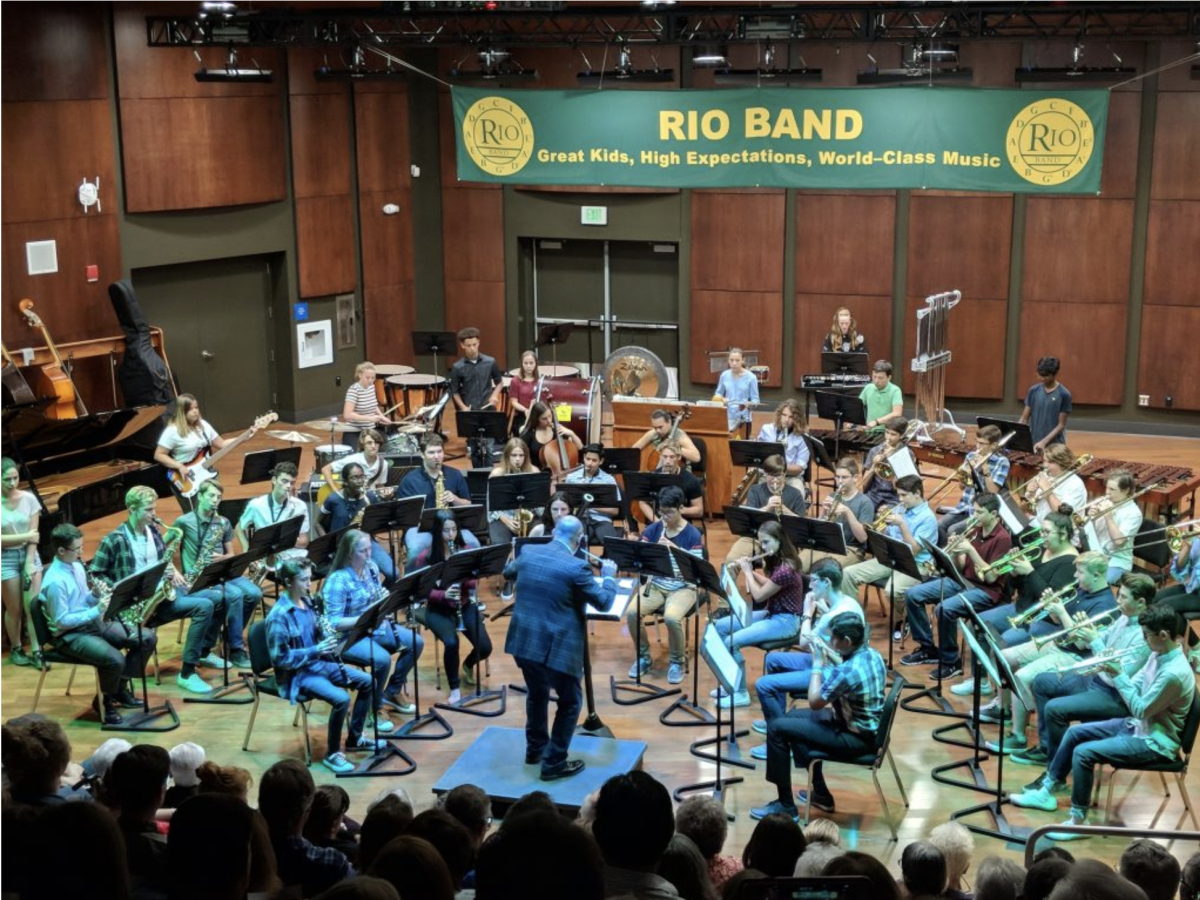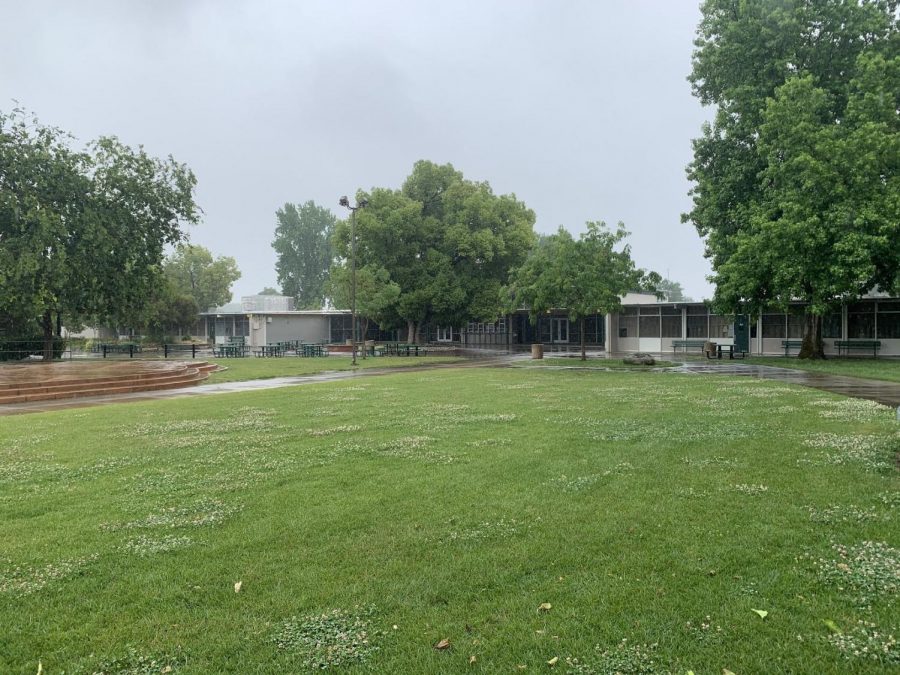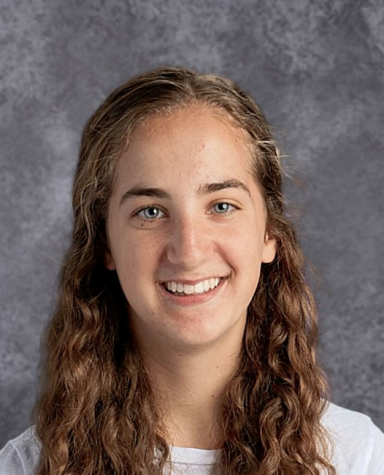4X4 Debate Heading to Faculty Vote
Photo By Nicolas Gorman
With new district wide graduation requirements taking away space in students’ schedules for electives and remediation the school is considering switching from a six-class day to a four-by-four block schedule.
In a block schedule students would take four 90-minute classes each semester, allowing them to take eight classes a year instead of six.
“The requirements for graduation in San Juan were low compared to when you look at surrounding schools and by making the requirements similar to A-G requirements, they are allowing students to have an option when they graduate to go to college or career,” said Principal Brian Ginter. The new requirements include an added year of a foreign language, math and science class to graduate.
“It was almost like a college paced schedule. Twice as fast as a normal class at Rio. The students have fewer classes to focus on at once, but on the other hand, it’s twice as fast so some students

might fall behind,” said French teacher Jennifer Jenks, who taught with a block schedule at Del Campo for 14 years.The addition of a new foreign language requirement is worrisome to teachers who believe consistency is necessary to perfect a language.
“In foreign language, students can forget a lot in between as they only take it for one semester. The same applies for math and other subjects where it’s important to maintain that consistency and regularity so that can be tough to fall behind,” said Jenks.
Implementing the block schedule can potentially lead to a more personalized environment as teachers have less students and can focus on those who are struggling. “You have 90 minutes per day so you get to spend more quality time with the student and get to know them better and do more
in depth activities,” said Jenks.
Conversely, some believe the additional length from a traditional schedule will benefit more students, “…block classes would not properly support struggling students, who need year long rapport with their teachers and prolonged exposure to concepts over a full year in order to master content,” said English teacher Matthew Valencich.
The new schedule is oriented to make the graduation requirements similar to the A-G requirements to give students more options when they graduate or go to a career. Students will have more

credits and options after high school.
One hope with the block schedule is to utilize another period for struggling students to seek help from teachers. Additionally, if a student doesn’t pass a class, it would allow them to retake the class the following semester. Potentially, it would reduce the amount of students failing.
“What the school doesn’t realize is how much more stressful the schedule will be to students who take AP and Honors classes, especially if those classes are semester long classes will be quarter long classes,” said sophomore Aiden Mosley.
Along with more time with students, the additional time would allot for more room in students’ schedules.
“We would have more room in our schedules and therefore more ability to try new things and participate to try new things and participate in fun electives that we want to be in. It would be easier to take more advanced classes because they would probably not all be the same semester,” said junior Samantha Klein.
The block schedule allows for two more classes per year making some students schedules easier to manage and eliminating the stress of prioritizing classes. Consequently, other subjects are

threatened by this new schedule and some are concerned about the changes in curriculum that might occur.
“I think that converting to a four by four block would threaten too many of the programs that shape the core identity at Rio–Band, Civitas, and AP among them,” said Valencich.
The four by four adds an extra 80 credits, but eliminates 40 worth of electives. “By having less choice electives that means inevitably some of the election programs we have might go away because some kids aren’t choosing to take them,” said Ginter.
Band, which typically has two classes a day, is likely be affected. “We wouldn’t be able to have all the band classes we have now,” said junior Emily Augusta.
“Right now we have seven award winning bands and we would only be able to have four per semester and be unable to rehearse all year, I probably wouldn’t be able to take any band classes because of AP and other A-G requirements,” said Augusta.
Band isn’t the only threatened class from the new schedule. “Right now we have a lot of classes you can take. There’s art, there’s music, shop classes, there’s some of the APs, some CTE courses we have. It’s a possibility those classes could be taken away if we have less choice in the electives that students have,” said Ginter.
As a science teacher, Nicole Brashear says she would not recommend this schedule. “In science the standards don’t change. You still have to teach all this different subject matter and we’d have to

You can really focus on the four
classes you’re in rather than
spreading yourself super thin.
The cool thing about a 4×4 is
you get two extra classes so you
could finish like all of your nec-
essary graduating requirements
early which is nice.”
Ella Pierce (9)
take some stuff out because we wouldn’t have enough time to cover it. Or, we’d teach it so fast the kids wouldn’t be able to get it all in.”
Teachers are rushed because as a result of the shortened class time. “I still ran out of time because there’s such a shortened amount of time and you still have all the standards you have to meet. What usually happens is you take stuff out and you don’t get the depth of everything you would otherwise,” said Brashear.
Despite the conjectures, pursuing the schedule can improve and fit the needs of our school. The different schedule will still include opportunities for students to take the classes they like and maintain several electives.
One out of three schools now use block schedule although the long-term effects are still unknown. A study done in North Carolina concluded that both block and non-block schedules resulted in end of year tests. The four by four schedule also showed a decline in failing students as they were able to retake classes as needed.
Although, schools with a traditional; yearlong schedule had better AP test scores because of the additional time students received.
“I see it beneficial for graduation requirements and electives for the breath of the program and for struggling students,” said Ginter.
In the long run, over four years, a student will have 320 possible credits whereas now students receive 240 credits. As a result, students who don’t have an open period can take six instead of five classes allowing more classes to be taken if needed.
By January, the school will make a decision to implement this schedule for the class of 2023.



























news reader • Nov 8, 2018 at 1:17 PM
Four by four will create more electives, which students need. I hope the school has the wisdom to adopt this proven schedule